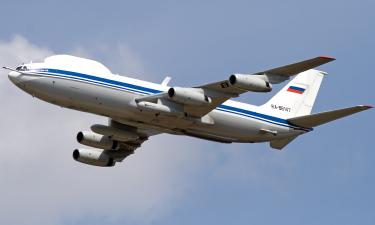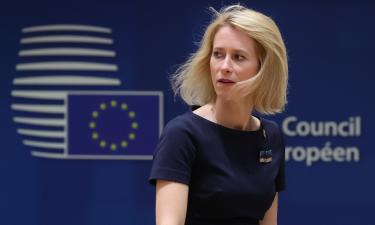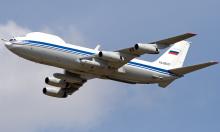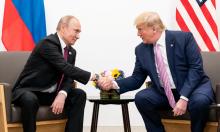Curse of Prosperity: Reflections on the 1998 Financial Crisis
Is Russia better off today than it was five years ago? Well, if you are into economic indicators, number crunching, charts, graphs, or interested in seeing some Western pundits attempting to make a comeback after getting Russia terribly wrong five years ago, then the answer to this question is an undeniable 'yes.'
Five years later is also an election year; Russia's ruling political elite no doubt is quite pleased to pat itself on the back, demonstrating to the electorate who is best when delivering the goods. Russia indeed is a very different place than it was five years ago. But different does not necessarily mean better.
Most of the comparisons made between the Russia then and the Russia today primarily focus on quantitative changes at the expense of what is different qualitatively. There is no denying the economy's year after year GDP growth, balanced budgets, increased tax collection, and increased exports. Indeed, the economy's performance since the 1998 financial crash is the envy of most of the world. However, statistics hardly tell the entire story of Russia's continuing transformation since 1998. Statistics are not always attentive to what change means in a qualitative sense.
Russia's recent economic good fortune has become in many ways a conduit for government complacency when it comes to continuing the reform and restructuring drive that it needs to pursue in areas beyond the economy. For all the progress seen in the macroeconomy, little can be said about social and political changes, as well as the rule of law. All three are essential for the advancement of this country's civil society project. Economic growth has yet to 'trickle down' into the social and politic spheres. This has been the Kremlin's blindside over the past half decade.
As the economists, government officials, and Western pundits celebrate Russia's achievements, Russia is in many ways just as poor, if not poorer, than it was five years ago. It may be poorer in areas that can make recent macroeconomic gains ephemeral in the medium term. A Russia that is more prosperous is sidelining what could and should make it stronger.
Russia may be actually poorer due to what many call 'political stability.' Indeed, the presidency of Vladimir Putin has witnessed a vastly different political environment compared to his predecessor Boris Yeltsin. Yeltsin had to fight a gridlock war with the State Duma during most of his term in office. Putin has enjoyed very cordial relations with the Duma, a legislature controlled by the Kremlin and will pass into law any bill when ordered to. However, who is to say that Russia's political environment is richer when the executive branch of government is the sole decision-maker of what another branch of government decides? Kremlin leverage over the Duma has seen the reform effort slowed, not accelerated over the past year.
Greater wealth appears to make the country's political parties poorer. The Kremlin's unofficial favorite, called United Russia, has yet to make a real impression on the electorate beyond being the block of parties that represent the will of the authorities. The Communist Party, Russia's only real political party in a conventional sense, is very comfortable with its ineffectual 'opposition' stance concerning the status quo determined by the Kremlin. The fact that the Communist Party will not reform itself into a mainstream European social democratic party is greatly appreciated by the Kremlin. Such a transformation could easily transform Russia's experiment with democracy. Russia's other political parties are completely irrelevant in the scheme of things. Their existence is not much more than an attempt to prove that some kind of political choice exists in Russian politics.
From a social point of view, there is no doubt that some Russians are better off due to the country's economic boom. Disposable income is up on the back high ruble liquidity, supporting a level of consumer buying that is unprecedented in Russian history. However, it is rarely pointed out that the lack of reform in the housing, communications sectors, meaningful improvements concerning the country's infrastructure, and other social services areas mask the fact that many of what is called Russia's middle class lives at the expense of unreformed and state-subsidized parts of the economy. It also needs to be mentioned that something like a Western middle-class may be in the making in Russia, while at the same time income differentials dividing rich and the very poor continue.
The rule of law during Russia's time of enrichment has also not made much progress. The on-going Kremlin -Yukos-Mikhail Khodorkovsky affair demonstrates just how conditional interpreting the law is in Russia at present. The legal definition of property rights remains an open question five years after the financial crash. Five years later this is not encouraging. This conflict has cast doubt on Putin's 'political stability' that is so often touted.
It is correct to reflect upon what has been achieved in Russia over the past five years. However, such reflection should include what has not changed. Looking at the larger picture, one could make the claim that Russia has created for itself arms of steel with legs of clay as a foundation. Russia's good fortune has yet to be invested in what makes a country and society stronger - its people.
Peter Lavelle.




